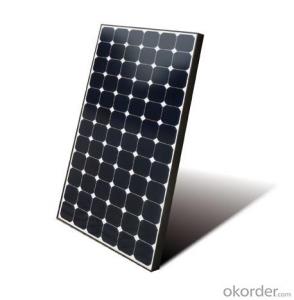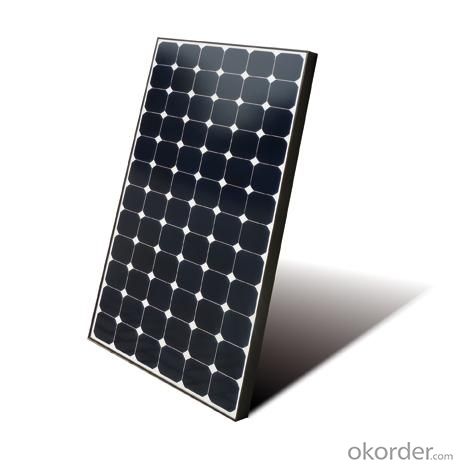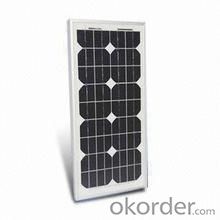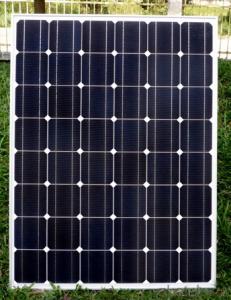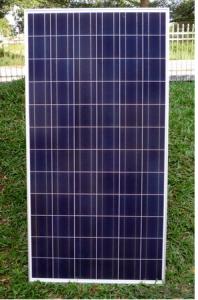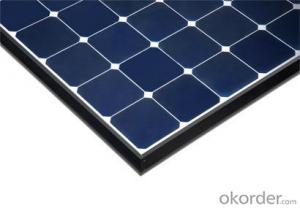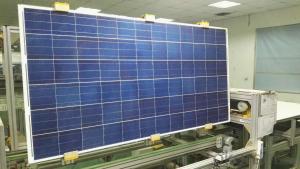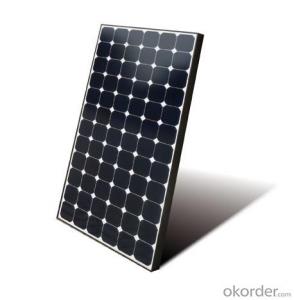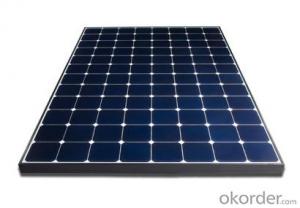Home Depot Solar Energy Systems - CNBM Poly 80W Off Grid Solar System with 10 Years Warranty
- Loading Port:
- Shanghai
- Payment Terms:
- TT OR LC
- Min Order Qty:
- 100 watt
- Supply Capability:
- 1000 watt/month
OKorder Service Pledge
OKorder Financial Service
You Might Also Like
Specification
CNBM Poly 80W Off Grid Solar Sytem with 10 Years Warranty
Product description
Electrical power can be generated on-site with renewable energy sources such as solar (particularly with photovoltaics), wind, micro hydro, geothermal; with a generator or Micro combined heat and power with adequate fuel reserves. Such a system is called a stand-alone power system. In addition, it is possible to simply eliminate electric power such as in Old Order Amish and Old Order Mennonitecommunities.
TThe concept of a sustainable off-grid community must take into consideration the basic needs of all who live in the community. To become truly self-sufficient, the community would need to provide all of its own electrical power, food, shelter and water. Using renewable energy, an on-site water source, sustainable agriculture and vertical farming techniques is paramount in taking a community off the grid. A recent concept design by Eric Wichman shows a multi-family community, which combines all of these technologies into one self-sufficient neighborhood. To grow the community you simply add neighborhoods using the same model as the first. A self-sustained community reduces its impact on the environment by controlling its waste and carbon footprint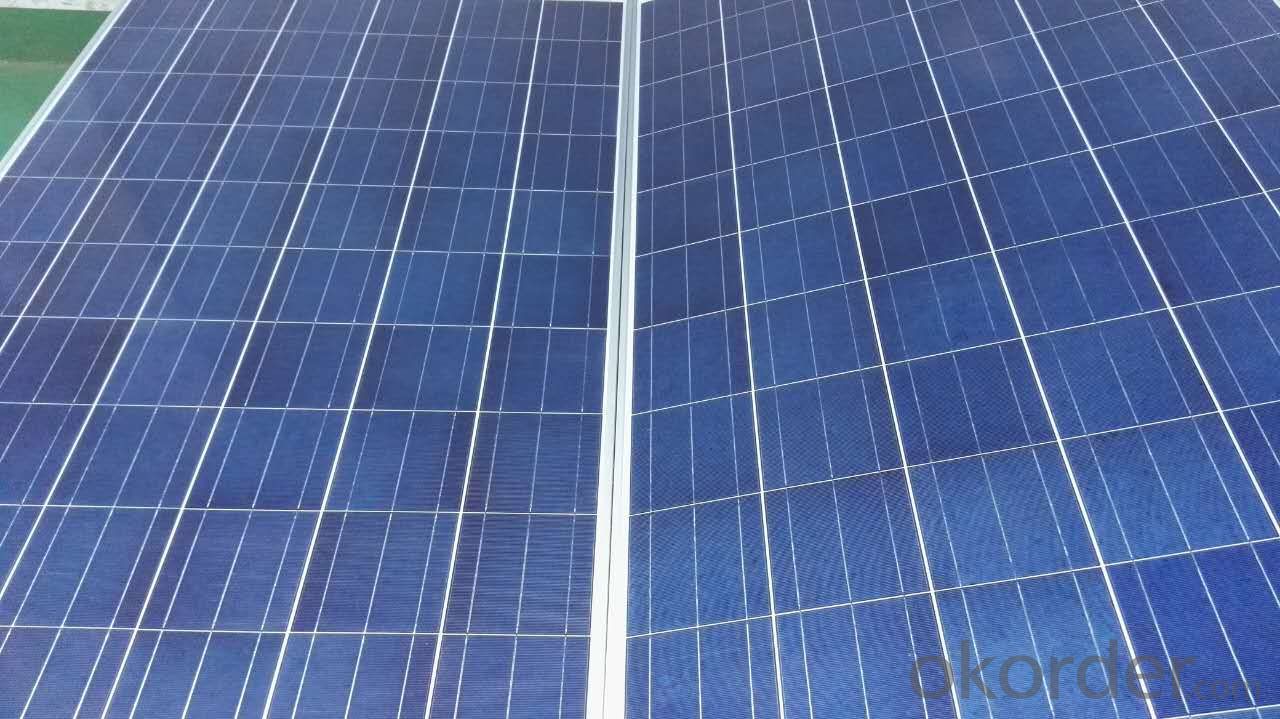
Application
Residential
Commercial
Industrial
Feature
Off-the-grid homes are autonomous; they do not rely on municipal water supply, sewer, natural gas, electrical power grid, or similar utility services. A true off-grid house is able to operate completely independently of all traditional public utility services. The idea has been recently popularized by certain celebrities including Ed Begley, Jr.[3] who stars in the Living with Ed[4] television show on the Home & Garden Television (HGTV) network. Actress Daryl Hannah promotes off-grid living and constructed her home in Colorado according to those principles, as does survival expert and Dual Survival co-star Cody Lundin,[5] who lives in a self-designed, passive solar earth house in the high-desert wilderness of Northern Arizona, collecting rainwater, composting waste, and paying nothing for utilities.[6][7]
Packaging
With carton and box
- Q: How does the angle and orientation of solar panels affect their efficiency?
- The efficiency of solar panels is heavily influenced by their angle and orientation. The angle, which refers to the tilt or inclination of the panels relative to the ground, is crucial. It is adjusted to maximize the amount of sunlight the panels receive throughout the day. The ideal angle varies depending on the geographical location and purpose of the installation. In regions near the equator, where the sun is directly overhead, a steeper tilt angle can help capture more sunlight. On the other hand, in regions further from the equator, the optimal tilt angle may be less steep to ensure consistent sunlight exposure throughout the year, considering the changing angles of the sun during different seasons. The orientation of the panels, or the direction they face, is also important. In the northern hemisphere, panels are typically oriented towards the south, while in the southern hemisphere, they face north. This maximizes their exposure to sunlight since the sun's path across the sky is closer to the equator. The efficiency of solar panels is directly impacted by their angle and orientation. When panels are installed at the perfect tilt and orientation, they receive the maximum amount of sunlight, resulting in higher efficiency. This allows the panels to effectively convert solar energy into electricity or heat. However, if panels are misaligned or improperly oriented, their efficiency can be significantly reduced. For instance, if the tilt angle is too steep or the panels face the wrong direction, they may not receive sufficient sunlight, leading to reduced energy production. Similarly, if the angle is too shallow or the panels are shaded by nearby obstructions like trees or buildings, their efficiency will suffer. In conclusion, the angle and orientation of solar panels are critical factors that determine their efficiency. Proper alignment ensures that panels receive maximum sunlight exposure throughout the day, optimizing their energy production. Installing panels at the ideal angle and orientation is essential for maximizing efficiency and harnessing the full potential of solar energy.
- Q: Are solar energy systems affected by hail or other weather conditions?
- To some extent, solar energy systems may be impacted by hail or severe weather conditions. Hailstorms have the potential to harm solar panels, especially if the hailstones are large or if the panels lack sufficient protection. The glass covering of solar panels can crack or shatter due to hailstones, resulting in reduced efficiency or complete failure of the affected panels. It is worth noting, however, that solar panels endure rigorous testing and are designed to withstand various weather conditions, including hail. Most panels are constructed to endure hailstones of a specific size and are often tested for impact resistance. Panels that meet international standards generally possess the capability to withstand hailstones up to a certain diameter without experiencing significant damage. Furthermore, advancements in technology have led to the creation of more durable and resilient solar panels. Manufacturers are continuously enhancing the materials used in solar panel construction to improve their ability to withstand hail, extreme temperatures, and other weather-related challenges. In areas prone to hail or severe weather, additional precautions can be taken to minimize the risk of damage. These precautions may involve using hail-resistant glass, installing protective screens or barriers, or adjusting the tilt of the solar panels to reduce hail exposure. Overall, while hail or severe weather conditions can impact solar energy systems, the likelihood of damage is generally considered low, particularly when systems are properly installed and tested. Moreover, the long-term benefits and environmental advantages of solar energy outweigh the potential risks associated with weather-related damage.
- Q: What is the impact of dust storms on solar panel efficiency?
- Dust storms have a significant impact on solar panel efficiency as they can reduce the amount of sunlight reaching the panels and hinder their ability to generate electricity. The accumulation of dust particles on the surface of the panels creates a barrier that blocks sunlight, reducing the amount of energy that can be converted into electricity. This leads to a decrease in overall energy output, affecting the efficiency and performance of the solar panels. Regular cleaning and maintenance of the panels are necessary to mitigate the negative impact of dust storms and ensure optimal efficiency.
- Q: What is the role of a solar energy system installer?
- The role of a solar energy system installer is to design, install, and maintain solar energy systems for residential, commercial, and industrial properties. They assess the site, conduct energy audits, determine the system size and components needed, and then install the solar panels, inverters, and other equipment. Additionally, they ensure proper electrical connections, perform system testing, and provide customer education on system operation and maintenance.
- Q: How does shading affect the performance of solar energy systems?
- Shading has a significant impact on the performance of solar energy systems as it obstructs the amount of sunlight reaching the solar panels, thereby decreasing their efficiency in converting solar energy into electricity. Even a small amount of shading, such as from trees or nearby buildings, can cause a considerable reduction in power output. It is crucial to design solar energy systems in a way that minimizes shading to maximize their effectiveness and optimize energy generation.
- Q: Can solar energy systems be used for outdoor recreational activities?
- Yes, solar energy systems can be used for outdoor recreational activities. Solar panels can be used to power various outdoor recreational equipment such as camping lights, portable speakers, and even charging stations for electronic devices. Additionally, solar energy systems can be utilized to power outdoor recreational facilities like swimming pools, sports complexes, and campgrounds, providing sustainable and clean energy for these activities.
- Q: Can solar panels be installed on different surfaces like glass or metal?
- Yes, solar panels can be installed on different surfaces like glass or metal. In fact, solar panels are commonly installed on glass surfaces, such as windows or skylights, to maximize sunlight exposure. Additionally, solar panels can also be mounted on metal roofs or other metal structures. The key requirement is ensuring a sturdy and secure installation to support the weight of the panels and maximize their efficiency.
- Q: Can a solar energy system increase the value of my home?
- Yes, a solar energy system can increase the value of your home. Installing solar panels on your property can be seen as a valuable investment by potential buyers, as it offers several financial and environmental benefits. Firstly, solar energy systems can significantly reduce or even eliminate your monthly electricity bills, which is an attractive feature for potential homeowners. This can result in long-term savings for the new owners, making the property more appealing. Furthermore, solar panels are considered a sustainable and eco-friendly energy solution, which is becoming increasingly important to many homebuyers. As the world moves towards a greener future, properties with solar energy systems are seen as more desirable and can attract a wider pool of potential buyers. Studies have shown that homes with solar panels tend to sell faster and at higher prices than similar properties without them. A study conducted by the Lawrence Berkeley National Laboratory found that homes equipped with solar panels typically sold for a premium of around $15,000 compared to homes without solar. This demonstrates that solar energy systems can indeed increase the value of your home and provide a return on your investment. It is important to note that the increase in value will depend on various factors such as the size and efficiency of the solar energy system, the local real estate market, and the overall condition of your property. Consulting with a real estate professional who specializes in sustainable homes can provide you with more specific information regarding the potential value increase of your home. In summary, installing a solar energy system can enhance the value of your home by reducing energy costs, appealing to environmentally conscious buyers, and potentially selling at a higher price. With the growing emphasis on renewable energy, investing in solar power can be a wise decision that not only benefits you financially but also contributes to a greener future.
- Q: Can solar energy systems be used for powering military or defense installations?
- Yes, solar energy systems can be used to power military or defense installations. Solar power offers several advantages for these installations, including reducing dependence on fossil fuels, enhancing energy security, and providing a reliable source of electricity in remote or off-grid areas. Additionally, solar energy can contribute to reducing the environmental impact of military operations and help achieve sustainability goals. Many countries are increasingly adopting solar power for their military bases, with some even deploying portable solar systems to support field operations.
- Q: Can solar energy systems be used to power electric vehicles?
- Yes, solar energy systems can be used to power electric vehicles. Solar panels can be installed on the roof of a vehicle or in a stationary location to capture sunlight and convert it into electricity. This electricity can then be used to charge the batteries of electric vehicles, providing a clean and renewable source of energy for transportation.
Send your message to us
Home Depot Solar Energy Systems - CNBM Poly 80W Off Grid Solar System with 10 Years Warranty
- Loading Port:
- Shanghai
- Payment Terms:
- TT OR LC
- Min Order Qty:
- 100 watt
- Supply Capability:
- 1000 watt/month
OKorder Service Pledge
OKorder Financial Service
Similar products
Hot products
Hot Searches
Related keywords
